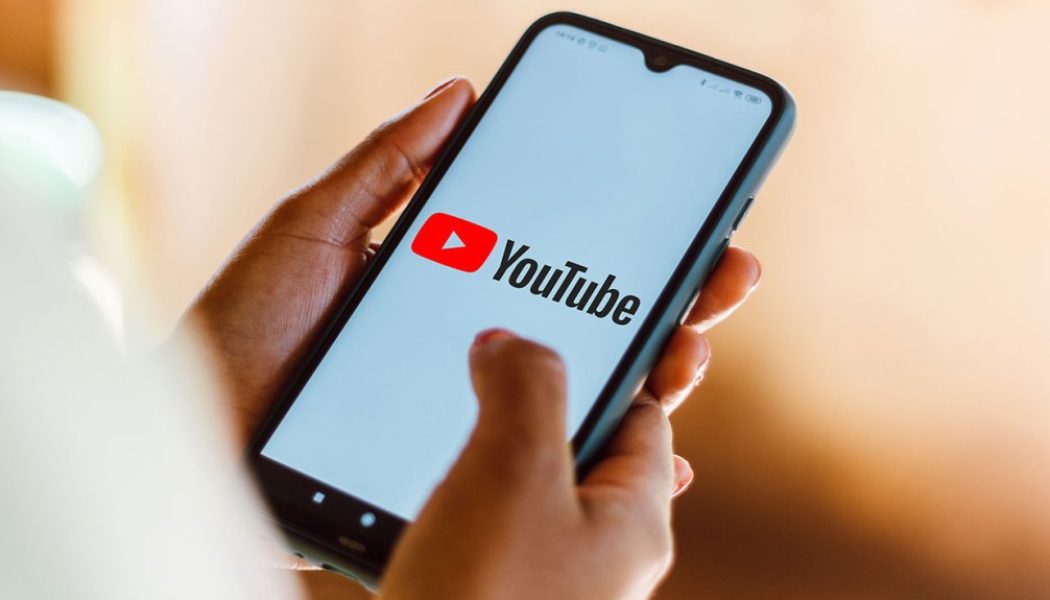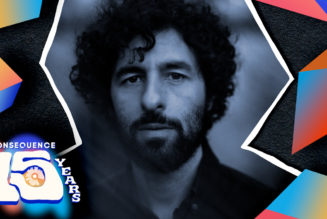
Louis Armstrong released “What a Wonderful World” in 1967, and the track eventually made its way to YouTube, like nearly every other recording, where it earns royalties for the single’s owner as well as its songwriters. For roughly a month in 2017, however, about $468 of the song’s publishing royalties made its way to the company Create Music Group, despite the fact that Create did not represent any of the parties involved in the song.
Create later said that its claim on Armstrong’s classic, made through YouTube’s online rights management portal, was the result of an error, according to emails shared with Billboard. The mistake was subsequently rectified with a payment to the proper entity. Publishing rights are infamously complicated, and sources from around the music business say YouTube’s rights system — which allows select companies to claim royalties on compositions — can be chaotic. It’s “a nightmare,” according to one executive with extensive royalty collection experience.
And not just for old songs: Half of the top 20 tracks on the Billboard Hot 100 are “in conflict,” according to Create co-founder Jonathan Strauss, which means rights holders have an unresolved dispute over royalty income. YouTube holds on to the money until the disagreements are sorted out.
While YouTube’s content management system has a high level of friction that will inevitably cause errors, some players take advantage of it and siphon off royalties that do not belong to them, according to a dozen sources for this story. And more than 10 of those — including artist managers, lawyers and executives at other royalty collection companies — say they know of instances where Create has claimed royalties it has no right to receive. (All sources spoke on condition of anonymity due to fear of backlash; several backed up their allegations by sharing emails and screenshots with Billboard.)
In an hour-long interview, Strauss from Create said his company’s claims are always guided by its clients’ deals — “CMG does not input or remove shares without authorization” — and he insisted that Create has never claimed Youtube royalties it didn’t have rights to. He added that the company has rapidly expanded and now represents 1.4 million “assets,” and “competitors are always gonna be a certain way about companies that are growing as quickly [as we are].”
The Middleman Is King
With over 2 billion users a month, YouTube generates money for rights holders primarily from ads that run in front of their songs or videos and from subscriptions. But artists and songwriters can’t collect revenue directly. In the land of YouTube, the middleman is king, and third-party companies with access to the platform’s content management system (CMS) hunt down royalties on behalf of their clients. These outfits must represent “a substantial body of original material that is frequently uploaded by the YouTube user community.” In practice, that means a limited range of labels, publishers, performance rights organizations, and collection companies are granted access.
If artists, writers or producers hope to get the money they earn on the platform, they need to retain one of these companies. One such company is Create, which built its business as a “disruptor” — as Strauss put it in 2018 — around YouTube royalty collection; by 2021, it said it had collected more than $200 million for artists. “A lot of these artists told us they were making more from us than their label was paying them,” Strauss told Billboard in 2018. Create expanded into distribution and publishing as well. At least at one point, the company was also working with Universal Music Publishing Group to help collect YouTube money and “analyze streams of data and spot smoke signals that lead to compelling content and talent,” according to one Universal exec. (It’s not clear if the deal is still ongoing; Create declined to comment in response to a question about whether it still has a deal in place with UMPG, and UMPG did not respond to a request for comment.)
Sources say intermediaries like Create usually take anywhere from a 10% to 50% commission for collecting publishing royalties from YouTube, depending on their contract with the artist and the level of service provided. (One publishing source estimates that a music video with 1 million views in the United States generates $600 to $800 in publishing income; another says it’s $300 to $500.)
Independent jazz musician Maria Schneider is currently suing YouTube to gain access to its back-end tools; in a recent legal filing, an attorney for the platform states that access must be limited “to ensure that those who use them will do so responsibly, and will not cause harm to YouTube, its users, or to other copyright owners.” But multiple sources contend that the platform’s tight control over its CMS has done little to prevent some companies from gaming it.
Last month, Billboard reported on two Phoenix-based men who were indicted for running one of the biggest YouTube scams in history: According to charges brought against the pair, over the course of four years, they managed to rack up $23 million in recording and publishing royalties for over 50,000 Latin music copyrights they did not control. A source told Billboard in August that the duo used a royalty collection company to make “hundreds” of incorrect claims on music they didn’t have the rights to.
“The shit that goes on is nuts,” says one executive who has extensive experience with YouTube’s CMS.
“Claiming the Crap Out of Everything”
Sources familiar with the CMS say that anyone who has access can “claim” some or all publishing royalties from a song without having to prove they have a right to collect that revenue. As long as no one else has claimed the same royalties, YouTube simply sends them the money. (YouTube pays out royalties monthly.) If two or more entities claim more than 100% of the rights, a song is “in conflict,” which sources say is relatively common, even for big hits.
YouTube doesn’t notify artists or songwriters that they are owed royalties. It also doesn’t check claims to ensure they’re made by actual rights holders, or intervene when works are “in conflict.”
Since artists, producers, and songwriters aren’t permitted to access the system on their own, and they’re not directly provided with information about their earnings, unspecified millions of dollars in royalties go unclaimed. On top of that, incorrect claims are common — an everyday occurrence, as one source with CMS experience told Billboard last month. Often these mistakes get chalked up to “bad data.”
“Bad metadata can be real,” another source with CMS access acknowledges. “It does happen.” But, the source continues, “it’s also an incredibly easy excuse” that can be used by a company to camouflage efforts to game the system.
And half a dozen sources who work regularly in the CMS say the lack of checks for those submitting incorrect royalty claims makes the system vulnerable to manipulation. “If someone has access, they can spend time trolling around looking for popular songs, seeing what is and isn’t claimed, and then start claiming the crap out of everything,” explains one royalty collections executive. “It generates money, they get paid. They get caught, then they release their claim, and there is basically no repercussion after that.”
YouTube responded to a detailed list of questions about the CMS and allegations of errors and mis-use with a brief statement. “We have dedicated teams working to detect and prevent abuse or otherwise invalid use of each of our tools,” a spokesperson said. “We rely on a combination of humans and technology to detect suspicious behavior… We take abuse of our tools seriously.”
“They’re Doing It Egregiously”
Those who “troll around looking for popular songs, seeing what is and isn’t claimed” may well find publishing shares from big hits up for grabs. Two sources who have access to YouTube’s CMS say it may take from a few months to more than a year for copyright owners to register their shares in the system.
The delays in registration are due in part to the high volume of songs some of the companies that collect these royalties have to deal with. It can also take months after a release for writers to work out publishing splits with collaborators; until those splits are finalized, rights holders don’t know how much they can claim. On top of that, up-and-coming songwriters and producers don’t always have publishing deals, which may mean no one can collect on their behalf.
In these situations, royalties just lie there. While YouTube explicitly prohibits “manually adding your ownership to Content ID assets that you do not have a legitimate intellectual property interest in, even temporarily,” multiple people who operate in the CMS say there are companies that do not adhere to those rules. “[Say] there’s a video that came out yesterday, and no one’s claiming it,” another source familiar with YouTube’s CMS says. “If someone claims it now and holds on to the next accounting cycle, they’re going to get paid.”
Multiple sources with access to YouTube’s system say they know of instances where Create has claimed royalties to which it has no rights. “They get there first, collect a few dollars,” one label source says of Create. “Or nobody ever contests [their claim] and they collect forever. They’re doing it egregiously.”
“Artists tell us they’ve never done any business with Create, but [the company] keeps asserting ownership” over their publishing, adds another executive with CMS access. “They claim stuff when they have no right to touch it,” says a third executive, this one at a rival company.
Strauss is adamant that Create doesn’t do these things. “The people that are saying these things, how many conflicts does Create represent of your aggregate totals?” he asks. “If you don’t look at [the larger] perspective, the story becomes super biased and not accurate.” He also says that Create’s internal data indicates that 90% of the conflicts the company is involved in are resolved in its favor.
“There are times when Create has a specific split or percentage of ownership on a song that gets adjusted later on,” Strauss adds in a follow-up email. “This is not because Create is trying to get ‘extra’ money but simply because the official splits on songs often get changed after the initial release has already happened because of un-accounted for samples or smaller collaborators that get overlooked.” Any claims Create makes on YouTube are at the direction of its clients, Strauss says, adding that “clients are legally required to give us the correct splits.”
In addition, Strauss notes that “clients often switch managers and lawyers very frequently,” and new representation “get[s] a commission on new deals.” He says that these incentives lead artist teams to sign their clients up for new publishing deals and then “be very frustrated that they’re still” in a previous agreement with Create that entitles the company to collect their royalties.
Documents that Billboard reviewed show that when Create is notified that it’s collecting royalties from songs to which it doesn’t have rights, or taking a bigger share than it should, the company adjusts its claim, sometimes after months or several rounds of email. But three executives who work for competitor companies say Create doesn’t always pay back the money it has collected incorrectly – that the payment the company made after its incorrect claim on “What a Wonderful World” was an exception.
“Create responds to claims as quickly as possible,” Strauss says, and if a client ends its deal, Create removes its claims “typically between 30 to 60 days” after notification (though “it depends on the terms of the contract”). In addition, Strauss says that Create has its own accounting system set up so that, “in the rare instances when money is collected prior to a conflict” arising, that income can be allocated “to a publisher or third party.”
While Strauss argued that “competitors are always gonna be a certain way,” many of the sources who spoke to Billboard were lawyers or managers, not executives at rival companies. Asked about this, Strauss replied that “we’ve never been sued by a lawyer or manager for this activity [improper royalty claims]. You would have to think if there was any truly egregious activity they would do that.”
The cost of hiring a litigator, though, could likely exceed the damages from a win in court, three sources say. As one executive with CMS access put it, “No one’s going to court to collect $250.”
YouTube’s Hands-Off Approach
YouTube’s online documentation about its policies states that it comes down hard on those who violate them. “Partners who repeatedly or egregiously violate our content manager policies will face harsher penalties,” YouTube warns. “These penalties may include losing access to additional CMS features… or losing access to CMS entirely and termination of any contracts with YouTube.”
Two royalty collection veterans say YouTube executives told them it had given Create a “final warning” back in 2017, and several emails viewed by Billboard refer to this. Strauss, however, insists that “there was absolutely no final warning, that is completely, unequivocally false.” (YouTube did not respond to questions about this allegation.) “YouTube is actually one of our closest partners,” Strauss adds, and he said in an email that Create “works in good faith with platforms like YouTube to identify bad actors.”
The relative ease with which companies can claim YouTube royalties that they have no right to, combined with YouTube’s agnostic stance towards conflicts, has led to frustration with the platform. Because YouTube doesn’t step in and mediate, “it’s like, someone just punched me, and now it’s on me to go convince the person that punched me that they’re wrong,” says an executive who uses the CMS. “You do all the right things and are trying to make sure the money owed to your clients is coming to them,” but the revenue can still end up going elsewhere. “To YouTube, it doesn’t appear that it matters.”
Strauss offers one proposal for improving YouTube’s system. “I think everything in the music industry needs to be a hundred percent transparent for the public to view,” he says. “What we do needs to be public; what the competitors do needs to be public. The only way to solve things quickly is if we all had access to that data.”
[flexi-common-toolbar] [flexi-form class=”flexi_form_style” title=”Submit to Flexi” name=”my_form” ajax=”true”][flexi-form-tag type=”post_title” class=”fl-input” title=”Title” value=”” required=”true”][flexi-form-tag type=”category” title=”Select category”][flexi-form-tag type=”tag” title=”Insert tag”][flexi-form-tag type=”article” class=”fl-textarea” title=”Description” ][flexi-form-tag type=”file” title=”Select file” required=”true”][flexi-form-tag type=”submit” name=”submit” value=”Submit Now”] [/flexi-form]










Tagged: business, Create Music Group, entertainment blog, music blog, Publishing, Royalties, YouTube